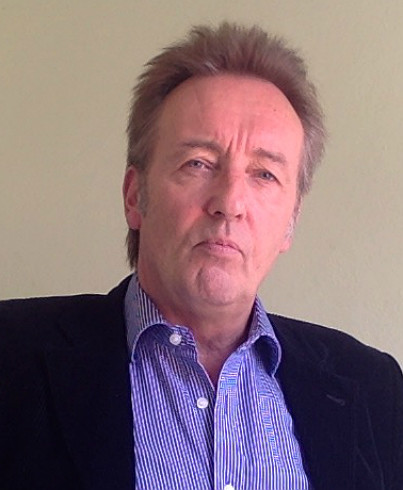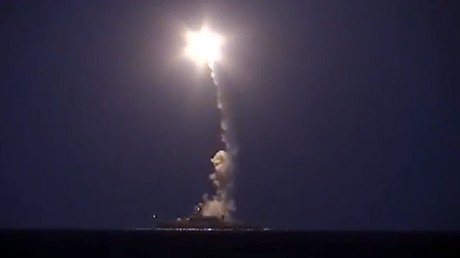Caspian deal an antidote to Washington’s bully boy tactics.


While the Trump administration is winding up international tensions across the globe with its penchant for slapping sanctions and tariffs on other nations, the breakthrough development over the Caspian Sea points to how multilateral accord can be achieved, and peace between countries maintained.
For over 20 years, the seashore nations of Azerbaijan, Iran, Kazakhstan, Turkmenistan and Russia have been locked in dispute over territorial rights governing the Caspian – the world’s largest inland body of water.
But last Sunday, the leaders of the five countries signed a landmark legal convention which formulates a compromise on sharing the benefits – and responsibilities – of the sea’s rich resources.
5 states sign historic deal on status of Caspian Sea https://t.co/VfgGV5CiBr
— RT (@RT_com) August 12, 2018
Addressing the other leaders in the Kazakh port city of Aktau, Russian President Vladimir Putin hailed the agreement as “epoch-making”, saying it would pave the way for greater cooperation and prosperity among the Central Asian neighbors.
Iranian counterpart Hassan Rouhani told delegates: “Our region could be an example of stability, friendship and a good neighborhood.”
At the heart of the erstwhile dispute was how to legally define the Caspian. Was it a sea or a lake? That definitional difference meant different governing laws could be applied, with implications for how the five littoral nations would share the resources of that vast waterway – an area (370,000 square km) which is bigger than that of Germany and many other European states. With huge oil and gas reserves, as well as lucrative fishing resources, the division of the Caspian has always been a fraught subject.
What has been agreed now is an innovative compromise between the stakeholder nations. The surface water is to be treated as an international sea which means freedom of navigation for the five peripheral countries to any of the shores. But the seabed is defined as if it were dry land, allowing for the distribution of constituent zones on an equitable basis.
The precise formula for sharing the area has reportedly yet to be established, requiring follow-up meetings between foreign ministers. But the main outcome so far is the five neighbors have come up with an amicable, workable solution.
“Reaching this consensus on the status of the sea was a difficult process,” said Kazakh President Nursultan Nazarbayev. “It required a lot of effort… but now we have goodwill.”
Up until the fall of the Soviet Union, the Caspian was shared by just two jurisdictions – that of the USSR and Iran. With the independence of Azerbaijan, Kazakhstan and Turkmenistan that led to more competing claims.
The hydrocarbon resources under the seabed are immense, estimated to be worth trillions of dollars. With proven reserves of 50 billion barrels of oil that puts the region ahead of the United States or Nigeria. In addition, there are natural gas fields reckoned to be equivalent in size to those of Saudi Arabia.
Commendably, the littoral nations have come up with a mutual accord to allocate the resources, recognizing the sovereignty of each. That means for Russia, it is obliged to accede to a trans-Caspian pipeline between Turkmenistan and Azerbaijan which could compete with its market share for fuel exports to Europe.
On the other hand, Russia’s total naval access to the Caspian gives it crucial security defense. Russian warships used the Caspian as a launching area for its Kalibr cruise missiles during the war in Syria in support of the Assad government against Western-backed militants.
As Putin also pointed out during the signing ceremony in Aktau, the Caspian is a vital security area for Central Asia, straddling Afghanistan and the Middle East. For Russia, securing its Caucasus region from encroaching terror threats is paramount.
Significantly, too, the Caspian Sea deal categorically excludes any external military power from gaining a foothold. Under the agreement, the sea is to be solely for the use of the five littoral countries. That means the US and NATO are forbidden from entering the area or setting up military facilities in the future.
That is of major concern to Moscow, since NATO has expressed plans to expand membership to Georgia in the South Caucasus, adjacent to Azerbaijan.
The Caspian deal can thus be seen as a model for diplomacy and multilateralism. It is a win-win for the five nations based on give-and-take and respect for each other’s sovereign rights.
Without agreement, the resource-rich area has languished from piecemeal development and lack of collective responsibility. The latter has caused concern over pollution and environmental impact on water quality and fish stocks, especially the famous sturgeon fish and its caviar delicacy.
Now, however, through consensus, the Caspian’s prodigious resources can potentially be harnessed for mutual prosperity in a way that protects the natural ecology through joint management and responsibility.
Having agreed on this mutual arrangement, the five Caspian nations are also now talking about developing closer trade links, transport and tourism. That potential integration of the economies also dovetails with wider developments for regional commerce and security through the five-nation Eurasian Economic Union of Armenia, Belarus, Kazakhstan, Kyrgyzstan and Russia, as well as China’s ambitious plans for Eurasian developmental partnership.
The timing of the Caspian Sea deal seems appropriate too. The signing of the accord last weekend came only days after the Trump administration announced new biting sanctions on both Russia and Iran.
Washington’s propensity for high-handed unilateral punitive measures is also seen with regard to recent sanctions on Turkey, as well as trade tariffs on China and the European Union.
American disregard for diplomacy and multilateral agreement has become increasingly apparent under President Trump. Such a tendency is fomenting economic instability around the world, and instigating dangerous international tensions, possibly leading to military conflict.
What the Caspian accord demonstrates is the feasibility and desirability of nations engaging in dialogue to resolve disputes. It reaffirms the importance of diplomacy and collective cooperation to overcome contentious issues, and to secure mutual benefits.
One can only imagine the outcome if instead of Russia, it was the US sharing a Caspian shore. The other nations would have been rolled over or attacked militarily to gratify Washington’s selfish interests.
READ MORE: ‘US isolating itself, while Europe, Russia & Iran are moving closer together’
Ironically, the recent rash of American bullying of other nations is driving them to find refuge through solidarity and partnership.
Iran’s President Rouhani specifically thanked his four Caspian neighbors for their continuing support of the international nuclear accord which Trump has walked away from. Russia and Iran are reportedly working on developing joint oil and gas projects in defiance of US trade threats.
Washington’s boorish behavior of trying to isolate and enervate what it considers as rivals or enemies is only leading to the opposite effect. It seems to be the US which is the one being isolated, while other nations innovate new ways of coming together for commerce and security.
As Russia’s Foreign Minister Sergey Lavrov said this week during a visit to Turkey, Washington’s bullying is creating motivating conditions and reasons for other nations to find solutions to avoid America’s abuse of its power.



